If it hasn’t been clear before, the latest IPCC report has put the crisis in plain view: life on Earth as we know is threatened, and the window of opportunity to avoid the worst is closing quickly. We have a seemingly vanishing timeframe of only twelve years to halve our carbon emissions compared to the year 2010.
Is all lost? No, not yet! While leaders continue to promote extraction of fossil fuels, or are, at best, reluctant in their actions, the citizens of the world, the people, rise up, demand change, and create change (e.g., Europe, Puerto Rico, and California). It is the people who have the vision and create movements and alliances that ultimately will break up the cultural hegemony, advocated by the current elites, which continues to fuel climate change. Science for the People has drawn attention to how corporations successfully lobby politicians into policies that just serve their profit. Frank Bove, an activist and organizer with SftP in its early days and now a member of the Atlanta chapter, published an article in the Science for the People Magazine in 1979 that exposed how the young technology of solar cells was already under attack by oil lobbies. Decisions around climate change are beholden to corporate profits and a perpetual growth-driven economy, in other words: capitalism.
Science for the People rises with the people, in the streets and at our writing desks, at the front lines to build a better tomorrow–together!
On September 8th 2018 we rose for Climate, Jobs, and Justice. The Science for the People Atlanta chapter co-organized a rally with 350.org Atlanta, Sierra Club Georgia, and 1.5 Degree Patrol, featuring a panel made of several local social justice organizations: Atlanta Jobs with Justice, Georgia Women’s Action for New Directions (W.A.N.D.), Los Vecinos de Buford Highway, The New Georgia Project, and WRFG Labor Forum. We were joined by about 100 people at the Flipper Temple American Methodist Episcopal Church in Southwest Atlanta to talk about capitalism, social justice, and climate change (event in the news).
This event was part of an international climate action arranged by the large coalition People’s Climate Movement. It was organized in response to California Governor Jerry Brown’s Climate Summit and drew attention to the fact that our leaders are not moving fast and bold enough to push back fossil fuel industry and avoid the worst climate scenarios.
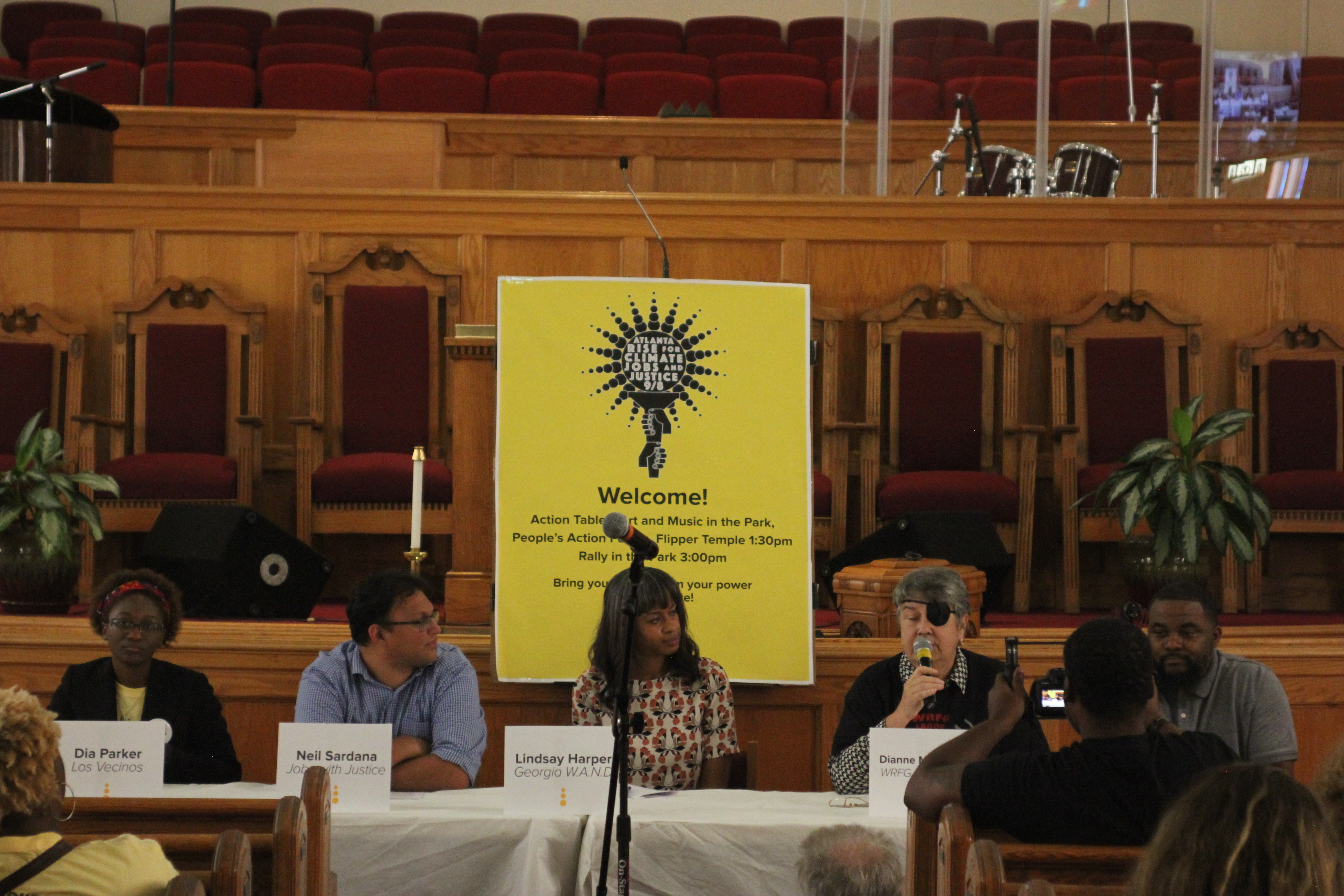
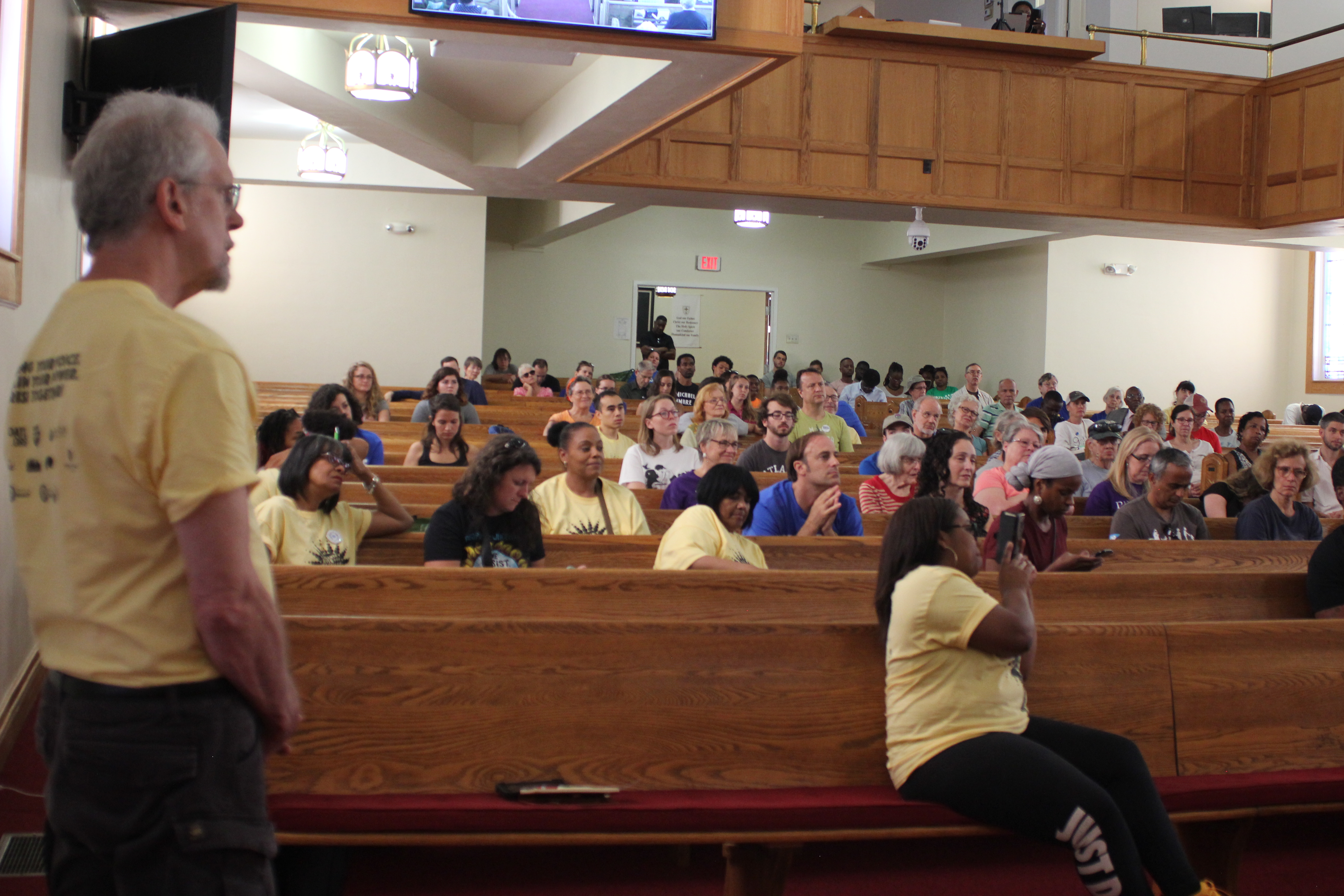
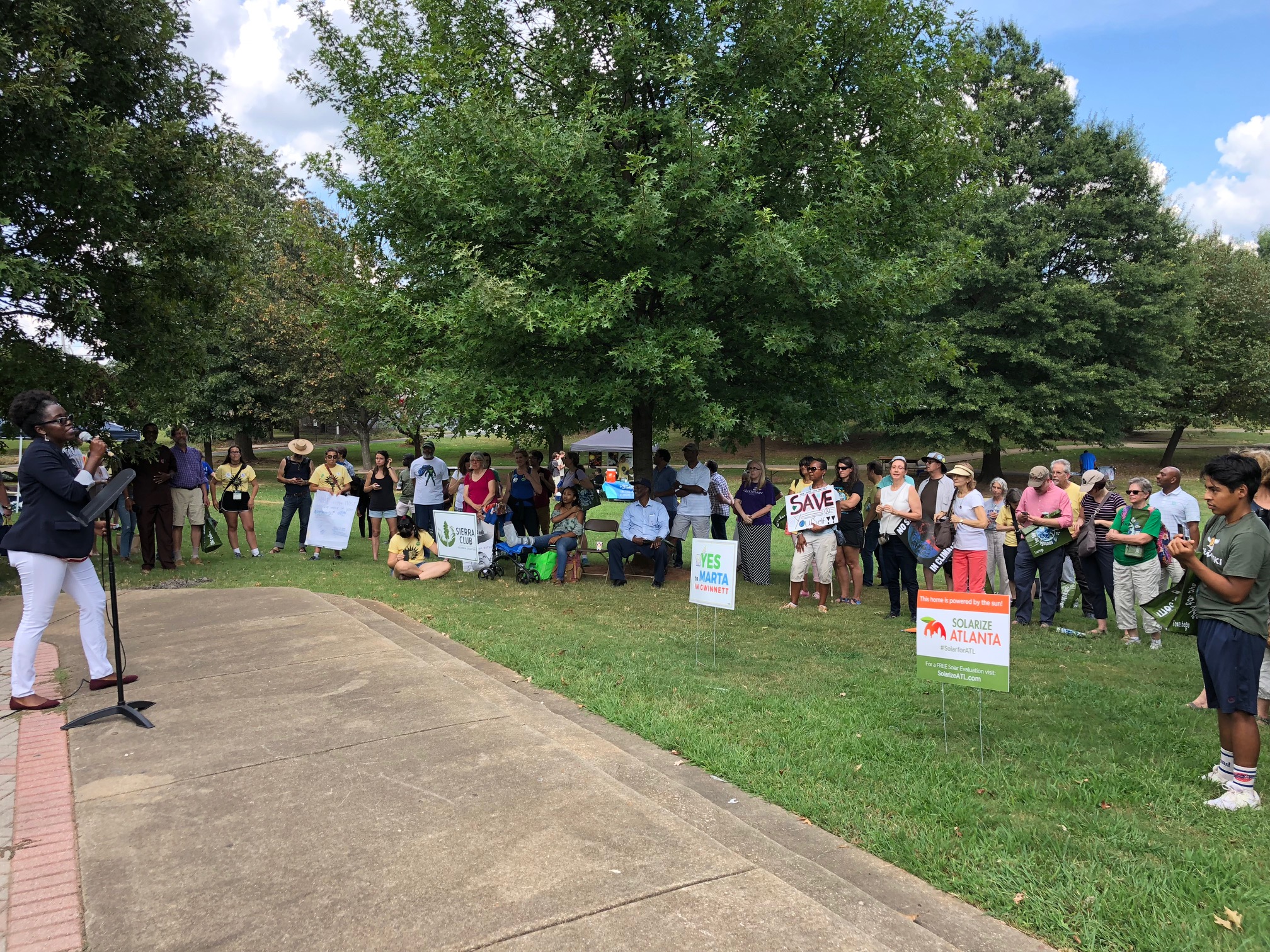
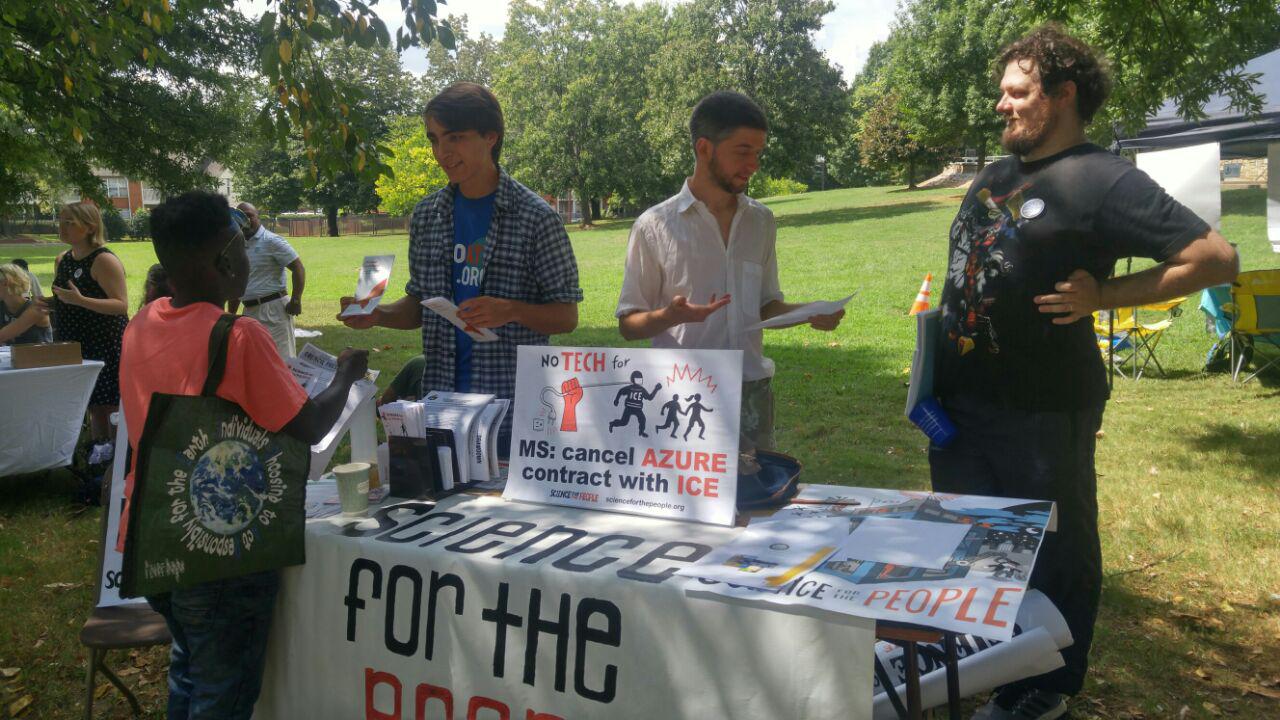
On September 22nd, the Atlanta chapter, together with our partner organization, EcoAction, tabled at the Just Energy Summit at Morehouse College. This event featured scholars, social and environmental justice activists, and policy makers discussing strategies to achieve energy justice in the metro Atlanta area. Energy democracy was at the center of the discussion as was the city council’s resolution to transition to 100% clean energy by 2050. Some of our members, including Jordan French, Chris Smoot, Amber Keller, and Frank Bove engaged with the participants and joined the event’s working groups. Our tabling at the Just Energy Summit set in motion steps for SftP Atlanta to become part of Atlanta’s “Just Energy Circle”, a coalition of community and grassroots organizations addressing social and environmental justice issues.
These are examples of our continuous effort to build bridges and establish collaboration with marginalized communities, where we seek to support by providing access to resources through intentional community-based organizing initiatives for a better and more just Atlanta. Both events occurred in Southwest Atlanta’s historically Black district where environmental injustice specifically has been an issue for generations.
To help achieve our goal of collaboration with local groups in Atlanta, our SftP chapter focused its work on the intersection of climate change and social justice beginning in early 2018. As Atlanta’s city council came forth with a resolution in late 2017 to transition to 100% clean energy, our chapter decided to devote our monthly reading and discussion group to this topic to educate ourselves and our community on how to transition in an equitable way. In these reading group sessions we covered theoretical concepts such as Marx and Engels’ concept of the metabolic rift, the cause and impact of climate change on a global scale, and local solutions like energy democracy as a means to achieve an equitable clean energy transition. Energy democracy is a crucial concept to highlight since it prescribes the dissemination of decentralized renewable infrastructure, which will put energy production, and thus power, into the hands of the people, and creates the potential for thousands of well-paid jobs. Energy democracy is a key vehicle for the city of Atlanta’s equitable clean energy transition, as well as, on a federal scale, the “Green New Deal” that was put forward recently by congresswoman-elect Ocasio-Cortez. Finally, we learned technical and political aspects of how to integrate renewables into the existing energy grid which concluded this year’s reading group.
Besides these actions in 2018 we successfully organized and supported several other events: together with Metro Atlanta DSA we picketed a Microsoft store in solidarity with Microsoft’s workforce that joined the #NoTechForICE movement (more here), four of our members joined the Science for the People Puerto Rico solidarity brigade (more here), and finally we supported the organizing of the local March for Science (more here).
These activities have provided a solid foundation for our chapter to grow into the next year, continue developing partnerships and forming alliances with other grassroots organizations. Our goal is to extend the discussion about climate change and advocate for a just transition to renewable energy in Atlanta. Our chapter, currently, has about 10 active members and over 100 subscribers to our listserv.

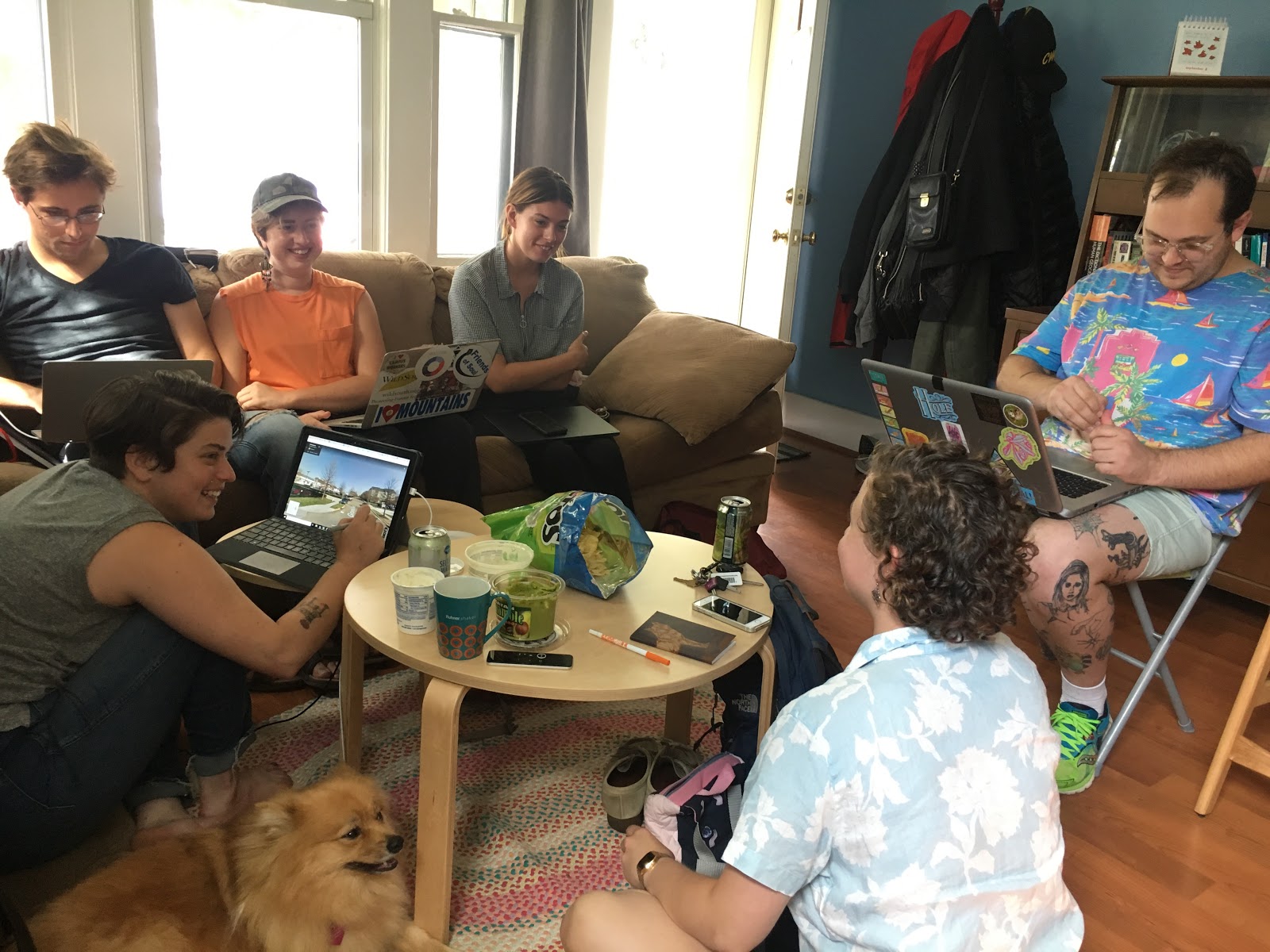

 The Boston chapter of Science for the People has passed through several stages since the rebirth of the organization on a national level in 2014. Currently, with the incorporation of new members inspired by the national convention in Ann Arbor in February 2018 and by politically oriented science events in Boston, the chapter has more than a dozen active members and many more who occasionally participate in chapter meetings. Most of the active members are associated with five universities around the city as students, post-docs, or faculty and represent a range of disciplines, such as physics, mathematics, oceanic and atmospheric sciences, bioengineering, public health, history and philosophy of science, with a few journalists, editors, and others not affiliated with universities.
The Boston chapter of Science for the People has passed through several stages since the rebirth of the organization on a national level in 2014. Currently, with the incorporation of new members inspired by the national convention in Ann Arbor in February 2018 and by politically oriented science events in Boston, the chapter has more than a dozen active members and many more who occasionally participate in chapter meetings. Most of the active members are associated with five universities around the city as students, post-docs, or faculty and represent a range of disciplines, such as physics, mathematics, oceanic and atmospheric sciences, bioengineering, public health, history and philosophy of science, with a few journalists, editors, and others not affiliated with universities.